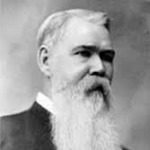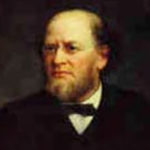Quotes about Creeds
There never was a man in the world without a creed. What is a creed? A creed is what you believe. What is a confession? It is a declaration of what you believe. That declaration may be oral or it may be committed to writing, but the creed is there either expressed or implied.
Men must interpret to the best of their ability each particular part of Scripture separately, and then combine all that the Scriptures teach upon every subject into a consistent whole, and then adjust their teachings upon different subjects in mutual consistency as parts of a harmonious system. Every student of the Bible must do this, and all make it obvious that they do it by the terms they use in their prayers and religious discourse, whether they admit or deny the propriety of human creeds and confessions. If they refuse the assistance afforded by the statements of doctrine slowly elaborated and defined by the Church, they must make out their own creed by their own unaided wisdom. The real question is not, as often pretended, between the word of God and the creed of man, but between the tried and proved faith of the collective body of God’s people, and the private judgment and the unassisted wisdom of the repudiator of creeds.
The motto “deeds over creeds” has once again captured the imagination of the evangelical world… But as it turns out, creeds really do matter. Any unity like the kind now being urged on us that is formed apart from creeds and the need for them, is doomed to produce the kind of unity that is polluted by doctrinal impurity. It is the kind of impurity that in the final analysis ends up compromising the truth of the gospel.
Many Christians in many evangelical churches these days are confessionally challenged in that they are either cynical, critical, or altogether skeptical of all things confessional — confessional documents, confessional churches, and confessional Christians. We might hear confessionally challenged Christians say things, such as “My only creed is Christ” or “I don’t need theology, just give me Jesus” or “Confessions divide, Christ unites.” Such Christians are actually under the impression that their churches don’t have confessions, when in truth every church has a confession, though it may not be written down and though it may constantly change according to the whims and fancies of the pastor. They have been somehow deceived into thinking that all of the various historic Reformed confessions only serve to divide the church of its unity and disarm the Bible of its authority. Nothing could be further from the truth, for what is so amazing about Reformed confessions in general is not how different they are from one another but how similar they are — how they each use biblical language in affirming the faith once delivered to the saints.
There are myriads of Christians who know every article of the Athanasian, Nicene, and Apostolic Creeds, and yet know less of real Christianity than a little child who only knows that he loves Christ.
Creedal statements are an attempt to show a coherent and unified understanding of the whole scope of Scripture.
True salvation is not to be found through the mere reception of any creed, however true or scriptural. Mere “head notion” is not the road to heaven. “You must be born again,” means a great deal more than that you must believe certain dogmas. The study of the Bible cannot save you! You must press beyond this; you must come to the living, personal Christ, or else your acceptance of the soundest creed cannot avail for the salvation of your soul. Salvation lies in Jesus only!
So, although Scripture is our sole infallible authority, we must interpret it within the boundaries of the so-called “ecumenical” (meaning universally held) creeds, such as the Apostles and Nicene creeds which faithfully express the fundamental doctrines of the New Testament. Indeed, the Reformers considered agreement with these creeds as necessary for a genuine Christian profession, and rightly so since the creeds define the essential doctrines of orthodoxy which all the cults deny.
The Sufficiency of Scripture: By What Standard? April 3, 2003, www.visionforumministries.org, Used by Permission.
Following, then, the holy fathers, we unite in teaching all men to confess the one and only Son, our Lord Jesus Christ. This selfsame one is perfect both in deity and in humanness; this selfsame one is also actually God and actually man, with a rational soul and a body. He is of the same reality as God as far as his deity is concerned and of the same reality as we ourselves as far as his humanness is concerned; thus like us in all respects, sin only excepted. Before time began he was begotten of the Father, in respect of his deity, and now in these “last days,” for us and behalf of our salvation, this selfsame one was born of Mary the virgin, who is God-bearer in respect of his humanness. We also teach that we apprehend this one and only Christ-Son, Lord, only-begotten in two natures; and we do this without confusing the two natures, without transmuting one nature into the other, without dividing them into two separate categories, without contrasting them according to area or function. The distinctiveness of each nature is not nullified by the union. Instead, the “properties” of each nature are conserved and both natures concur in one “person” and in one reality. They are not divided or cut into two persons, but are together the one and only and only-begotten Word of God, the Lord Jesus Christ. Thus have the prophets of old testified; thus the Lord Jesus Christ himself taught us; thus the Symbol of Fathers has handed down to us.
I believe in God the Father Almighty, Maker of heaven and earth: And in Jesus Christ his only Son, our Lord; who was conceived by the Holy Ghost, born of the virgin Mary, suffered under Pontius Pilate, was crucified, dead, and buried; he descended into hell; the third day he rose again from the dead; he ascended into heaven, and sitteth on the right hand of God the Father Almighty; from thence he shall come to judge the quick and the dead. I believe in the Holy Ghost; the holy catholic church; the communion of saints; the forgiveness of sins; the resurrection of the body; and the life everlasting. Amen
We believe in one God the Father Almighty, Maker of heaven and earth, and of all things visible and invisible.
And in one Lord Jesus Christ, the only-begotten Son of God, begotten of the Father before all worlds, God of God, Light of Light, Very God of Very God, begotten, not made, being of one substance with the Father by whom all things were made; who for us men, and for our salvation, came down from heaven, and was incarnate by the Holy Spirit of the Virgin Mary, and was made man, and was crucified also for us under Pontius Pilate. He suffered and was buried, and the third day he rose again according to the Scriptures, and ascended into heaven, and sitteth on the right hand of the Father. And he shall come again with glory to judge both the quick and the dead, whose kingdom shall have no end.
And we believe in the Holy Spirit, the Lord and Giver of Life, who proceedeth from the Father and the Son, who with the Father and the Son together is worshipped and glorified, who spoke by the prophets. And we believe one holy catholic and apostolic Church. We acknowledge one baptism for the remission of sins. And we look for the resurrection of the dead, and the life of the world to come. Amen.
Whoever desires to be saved should above all hold to the catholic faith.
Anyone who does not keep it whole and unbroken will doubtless perish eternally.
Now this is the catholic faith:
That we worship one God in trinity and the trinity in unity,
neither blending their persons
nor dividing their essence.
For the person of the Father is a distinct person,
the person of the Son is another,
and that of the Holy Spirit still another.
But the divinity of the Father, Son, and Holy Spirit is one,
their glory equal, their majesty coeternal.What quality the Father has, the Son has, and the Holy Spirit has.
The Father is uncreated,
the Son is uncreated,
the Holy Spirit is uncreated.The Father is immeasurable,
the Son is immeasurable,
the Holy Spirit is immeasurable.The Father is eternal,
the Son is eternal,
the Holy Spirit is eternal.And yet there are not three eternal beings;
there is but one eternal being.
So too there are not three uncreated or immeasurable beings;
there is but one uncreated and immeasurable being.Similarly, the Father is almighty,
the Son is almighty,
the Holy Spirit is almighty.
Yet there are not three almighty beings;
there is but one almighty being.Thus the Father is God,
the Son is God,
the Holy Spirit is God.
Yet there are not three gods;
there is but one God.Thus the Father is Lord,
the Son is Lord,
the Holy Spirit is Lord.
Yet there are not three lords;
there is but one Lord.Just as Christian truth compels us
to confess each person individually
as both God and Lord,
so catholic religion forbids us
to say that there are three gods or lords.The Father was neither made nor created nor begotten from anyone.
The Son was neither made nor created;
he was begotten from the Father alone.
The Holy Spirit was neither made nor created nor begotten;
he proceeds from the Father and the Son.Accordingly there is one Father, not three fathers;
there is one Son, not three sons;
there is one Holy Spirit, not three holy spirits.Nothing in this trinity is before or after,
nothing is greater or smaller;
in their entirety the three persons
are coeternal and coequal with each other.So in everything, as was said earlier,
we must worship their trinity in their unity
and their unity in their trinity.Anyone then who desires to be saved
should think thus about the trinity.But it is necessary for eternal salvation
that one also believe in the incarnation
of our Lord Jesus Christ faithfully.Now this is the true faith:
That we believe and confess
that our Lord Jesus Christ, God’s Son,
is both God and human, equally.He is God from the essence of the Father,
begotten before time;
and he is human from the essence of his mother,
born in time;
completely God, completely human,
with a rational soul and human flesh;
equal to the Father as regards divinity,
less than the Father as regards humanity.Although he is God and human,
yet Christ is not two, but one.
He is one, however,
not by his divinity being turned into flesh,
but by God’s taking humanity to himself.
He is one,
certainly not by the blending of his essence,
but by the unity of his person.
For just as one human is both rational soul and flesh,
so too the one Christ is both God and human.He suffered for our salvation;
he descended to hell;
he arose from the dead;
he ascended to heaven;
he is seated at the Father’s right hand;
from there he will come to judge the living and the dead.
At his coming all people will arise bodily
and give an accounting of their own deeds.
Those who have done good will enter eternal life,
and those who have done evil will enter eternal fire.This is the catholic faith:
one cannot be saved without believing it firmly and faithfully.
We may not consider any writings of men, however holy these men may have been, of equal value with the divine Scriptures, nor ought we to consider custom or the great multitude, or antiquity, or succession of times and persons, or councils, decrees or statutes, as of equal value with the truth of God, since the truth is above all; for all men are of themselves liars and lighter than vapor.








